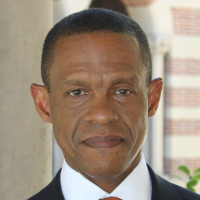Experts Discuss Far-Reaching Impact of Expected Roe v Wade Rollback
As the Supreme Court of the United States nears the end of its current session, the court’s expected overturn of Roe v. Wade could have a far-ranging ripple effect, well beyond women seeking to terminate a pregnancy. The rollback of abortion rights may impact voter turnout, the training of doctors, the health of the economy, as well as family stability.
Here, USC experts weigh in. (Click here for additional SCOTUS insights from USC experts.)
Contact: uscnews@usc.edu or 213.740.2215.
Restrictions will reverberate beyond women seeking abortions
“Restrictions to abortion access will have a profound effect on the education of ob/gyns and the care of women nationwide. Doctors who are well-trained in the provision of both medical and surgical abortion are better able to provide the full range of options to women who not only want to terminate but who are dealing with miscarriage and stillbirth. Therefore, restrictions to abortion will have a greater negative impact on women beyond those who are desiring to terminate a pregnancy alone.
“Many of the legislated restrictions on women’s access to abortion don’t acknowledge that more individuals than women are impacted by abortion, including their male partners, their families, their children. Abortion is not a decision made by women alone, it’s often made as part of a couple. If more men were aware of the importance of speaking out about abortion, abortion would not be so stigmatized.
“Men can and should be involved in sexual and reproductive health care. Even if men do not undergo abortion procedures, they still experience an abortion. We estimate that approximately one in five men have been involved in an abortion, and that’s likely an underestimate because some men are unaware, or they misreport because of stigma. In a survey of men whose partners had an abortion, about half of the men said they desired the abortion so they could focus on the children they already have.”
Brian T. Nguyen is an assistant professor of obstetrics and gynecology at the Keck School of Medicine of USC who researches men’s role in reproductive health care.
Contact: lhopper@usc.edu
For voters, abortion is ‘highly mobilizing’
“In past midterm elections, social issues have motivated voters both on the right and the left to turn out. When the economy is bad, political parties have used social issues like abortion to motivate their base.
“This has recently been an effective tactic of Republican candidates. However, this time the issue of abortion very well may help Democrats and it is highly mobilizing to their base of voters in what could be a Republican year.”
Christian Grose is an expert in U.S. politics and government, especially the politics of the policy-making process. He is an associate professor at the USC Dornsife College of Letters, Arts and Sciences and academic director of the USC Schwarzenegger Institute for State and Global Policy.
Contact: cgrose@usc.edu
A court no longer ‘above politics’?
“The unprecedented leaking of a draft decision in a major case, the drumbeat of media coverage about the politicization of the Court, the bitter partisan fights over confirmation and very public calls for major judicial reforms like term limits and court-packing all seem to be contributing to a sense that the Court is no longer above politics but mired in them.”
Jeb Barnes is a professor of political science at the USC Dornsife College of Letters, Arts and Sciences. His research analyzes bias in media coverage of litigation, lawyers’ ethical duties to confront misleading press accounts of the legal system and how the filing of lawsuits influences attitudes toward claimants and their underlying claims.
Contact: barnesj@usc.edu
The activation of homegrown violent extremists
“The recent arrest and subsequent attempted murder charges against a California man who allegedly threatened to kill Supreme Court Justice Brett Kavanaugh is illustrative of the increasing threat presented by homegrown violent extremists (HVEs). Motivated by racial, religious and/or issue-oriented extremist ideologies, the threat of copycat or inspired attacks offers a clear and present danger for law enforcement, as the Supreme Court ruling on Roe v. Wade approaches.
“However, HVEs do not live in a vacuum, nor are their targets random. While they may be alienated individuals who have embraced a legitimizing ideology, it is the ‘enabling community’ component that we can influence by reporting concerning statements, postings, or behaviors. ‘See something, say something’ works and safety is everybody’s responsibility.”
Erroll Southers is Professor of the Practice in National and Homeland Security at the USC Sol Price School of Public Policy.
Contact: southers@usc.edu
# # #



